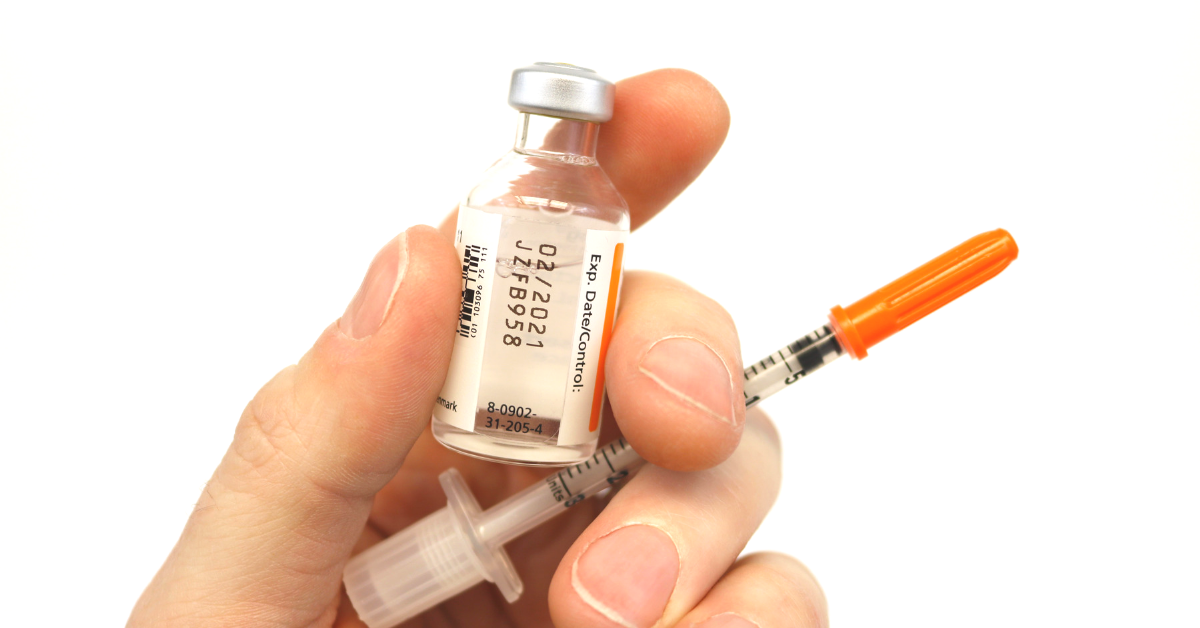
Ginger Vieira shares 5 tips to help increase your insulin sensitivity.
Insulin is a pretty awesome thing -- it keeps us alive! For people with type 1 diabetes and many of those with type 2 diabetes, taking enough insulin is a critical part of what keeps us healthy enough to enjoy the rest of our lives.
On the other hand, as the most powerful hormone in the human body, the less insulin we need in order to maintain healthy blood sugar levels, the better.
1. Eat vegetables for breakfast
For some reason, breakfast has become an excuse to eat starch-laden, heavily processed cereals and muffins, and frothy coffee beverages containing 80 grams of sugar. We know vegetables are an important part of other meals -- why have we deemed them inappropriate for breakfast?
Give this a try: cook up 2 or 3 eggs your favorite way, add an apple or other types of fruit, and then throw a whole bunch of kale, romaine, and spinach in a big bowl. Add a light serving of your favorite salad dressing...and eat up! Salads don’t need to be fancy and complicated to be worth it. You’ll get your greens and plenty of other calories from the eggs and fruit.
2. Dance in your kitchen every morning to your top 5 favorite songs
Hey, I get it: if exercise isn’t already a daily habit, trying to make it fit into your day can feel overwhelming. Take the “work” out of it by simply creating a short playlist (on YouTube, iTunes, Spotify, etc.) of your top 5 favorite songs. The songs that your body can’t help but start moving when that song is playing. Then, simply commit to dancing in your kitchen for those 5 songs. You don’t need a gym membership or a change of clothes and shoes. Just let that music play and move!
3. Drink less coffee and more water
Coffee ain’t a freebie. Sure, if you drink it black or with a packet of stevia, it contains nearly zero calories, but caffeine can also create insulin resistance and trigger the breakdown of glycogen to create extra energy. A 2008 study found that blood sugar levels of patients with type 2 diabetes soared after drinking coffee in the morning.
A 2014 study also found that fasting blood sugar levels spiked considerably after patients with type 2 diabetes drank coffee.
Remember, caffeine is a stimulant which means it’s also a bit of a stressor. Some might be good for us, but drinking it all day long is definitely going to increase levels of insulin resistance, increase levels of anxiety, and create an addiction to caffeine.
4. Exercise while watching TV with a mini-trampoline or dumbbells
If your excuse for not exercising is that you don’t have time, I’m going to ask you: how much time do you spend watching TV every day? If your next response is, “But I’m tired after work,” then I’m going to ask, “How many hours of your day at work are spent sitting down?”
You aren’t tired because sitting at your desk all day was physically exhausting. You’re tired because your body is desperate to get up and move. Ditch the excuses and get moving while you watch your favorite TV shows at night. Walmart sells a mini-exercise trampoline for under $30. Grab a couple 5 or 8-pound dumbbells while you’re at it and get moving!
5. Stop eating after dinner
The calories we eat after dinner can be tricky -- and sneaky. Unless you’ve been practicing intermittent fasting, it’s pretty likely that your body doesn’t actually need another 500 calories of chips or chocolate after eating 600 calories at dinner. And filling your belly with those less-than-healthy snacks means another huge wallop of insulin and waking up in the morning with a belly that just finished digesting all of that food.
While we often think of our background insulin needs as separate from our mealtime insulin, overeating on a daily basis will absolutely increase your background insulin needs! Give it a try next week for at least 3 days in a row: don’t eat after dinner. Pop a stick of gum. Hop on that little trampoline and keep the kitchen closed.
Remember, your insulin needs can easily decrease or increase based on lifestyle habits. If you lose even just 3 pounds, your background insulin may need to be lowered. If you’re suddenly going through a divorce and highly stressed, your insulin needs may need to bump up. Work with your healthcare team to fine-tune your doses for the sake of healthy blood sugar levels!

